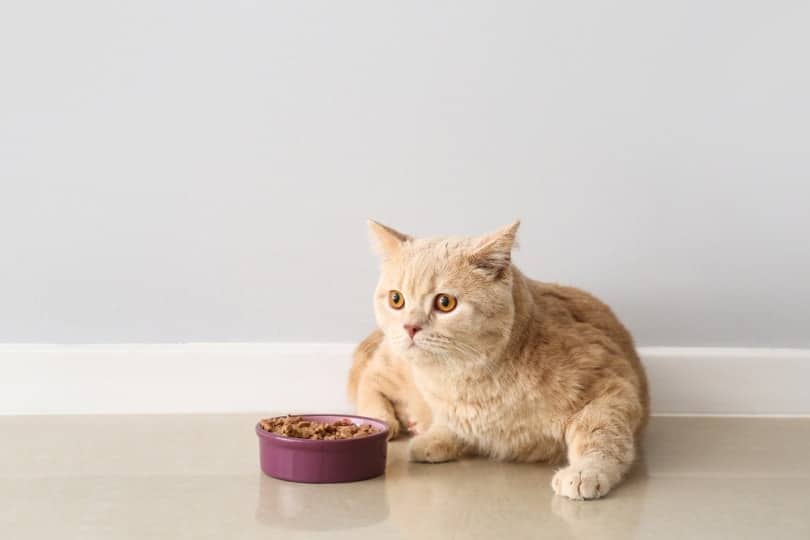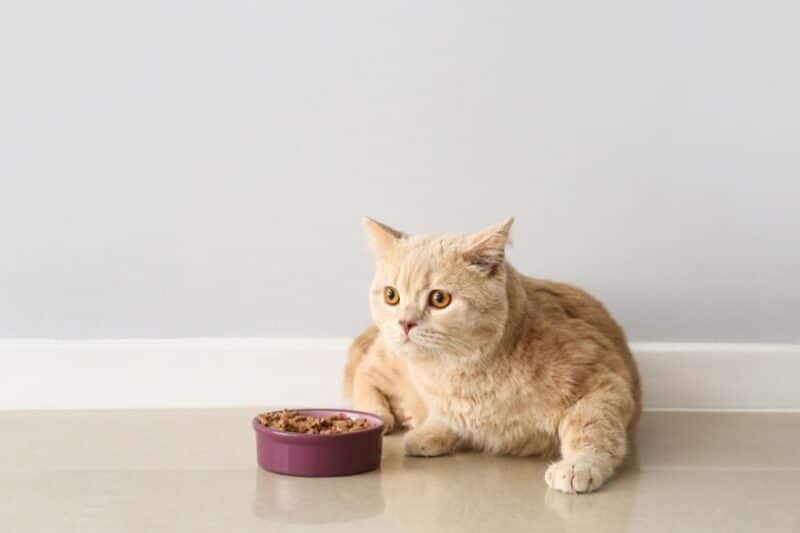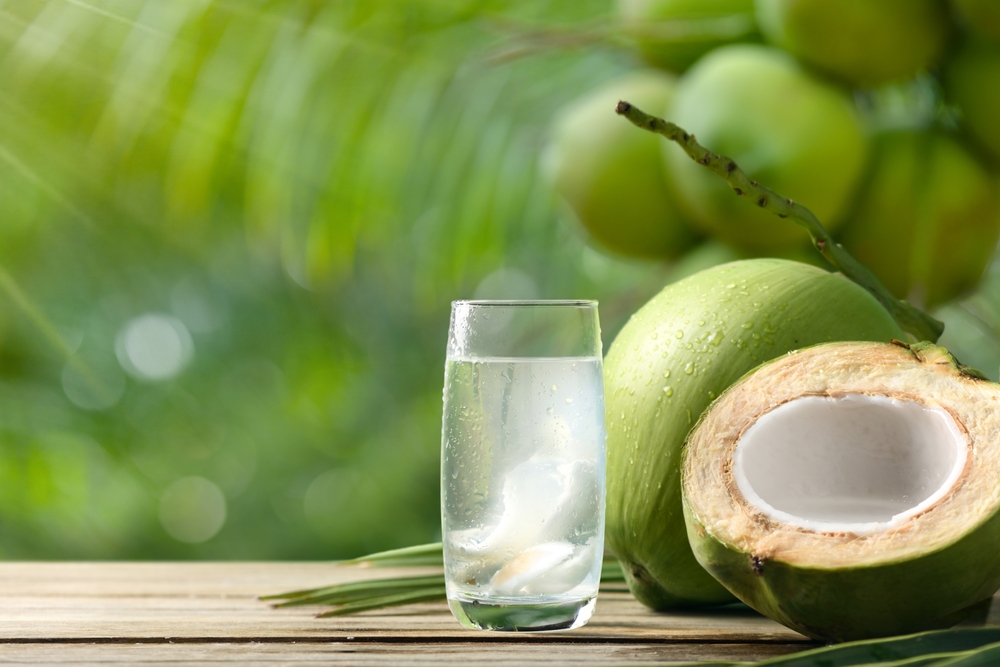Click to Skip Ahead
Before most surgeries, it is generally recommended that you stop feeding and giving water to your feline. When under anesthesia, there is always a chance that the cat may vomit while asleep and then aspirate. However, the chance is lower if there isn’t anything on the cat’s stomach. Your vet will provide you with very specific guidelines based on your cat’s needs, so check with them to ensure you are following these rules, or your cat may not be able to have surgery.
Not all cats need to wait the same amount of time, and it depends mainly on the cat’s age. Younger cats need to eat more often, or they may be at risk of hypoglycemia. Therefore, they may need to be fed closer to their surgery time. For some young cats, this may mean that the time they can have a very small amount of food is around 4–6 hours before their surgery. Older cats are often not to be fed overnight the day before their surgery. However, the exact guidelines vary from vet to vet. Some recommend restricting food intake starting at midnight or the evening before. Some recommend simply not feeding during the morning time. Importantly, most vets do not restrict water intake for your cat prior to surgery- so be sure to clarify this, as well.
Reasons Why Fasting Is Important
Fasting is recommended for a few different reasons. Anesthesia often causes cats to become nauseous. Furthermore, it temporarily removes their ability to swallow. Therefore, it’s very easy for cats to breathe in anything they vomit. This leads to a very serious condition called aspiration pneumonia, when an infection sets up in your cat’s lungs, and can be very serious. Thankfully, aspiration pneumonia is relatively uncommon.
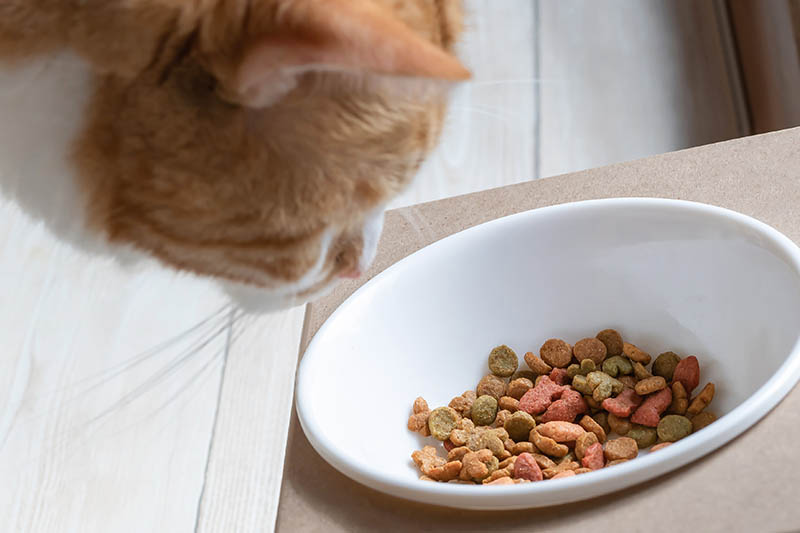
When Does the Rule on Fasting Change?
Sometimes, fasting recommendations change. Younger cats often have a harder time maintaining their blood sugar. Therefore, they may require fasting for a shorter period of time. A younger cat’s stomach also empties faster, so a shorter withdrawal of food may pose fewer problems.
Furthermore, cats with certain underlying conditions like diabetes may also be unable to go for long periods without food, particularly if they will be getting a dose of insulin during this period. You should speak to your vet about fasting guidelines, especially if your cat has underlying conditions or is very young.
How to Fast Your Cat Before Surgery
Fasting your feline may seem pretty straightforward. After all, all you need to do is remove their food bowl, right? While this works for most cats, there are other considerations. For instance, you need to consider that your cat may try harder to find food once they’ve realized breakfast is not being served!
Your cat may be more likely to get into the trash can, hunt small animals, or get into the pantry. Therefore, you should ensure that all potential food sources are put away and secure. Even if your cat usually doesn’t normally get into things, they may if they become hungry.
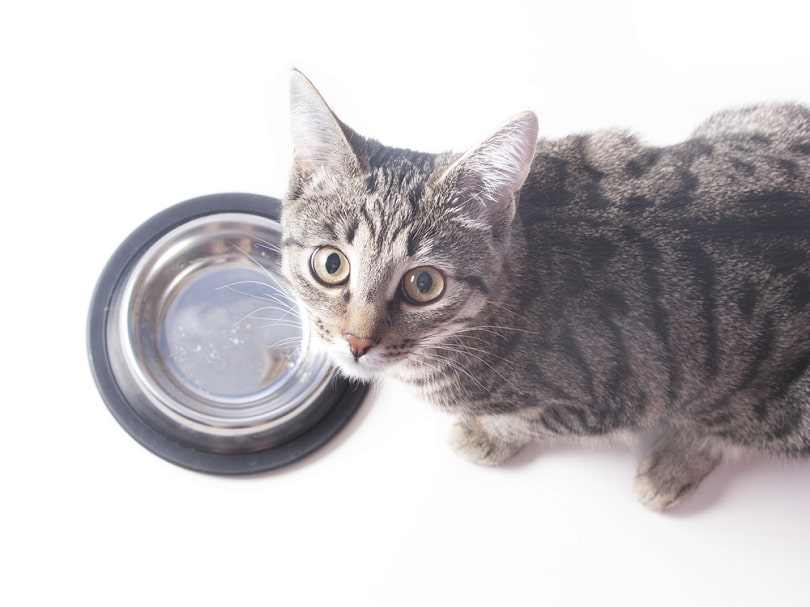
Can Cats Drink Water Before a Surgery?
Usually, pets can have water before surgery. However, it does depend on the vet. Some may have different recommendations, depending on your feline. You should ask your vet about water and other items, such as routine medications they might normally get during the fasting period, to see whether they should be given.
Conclusion
It is usually recommended for adult cats to fast start the night before the surgery. However, it depends on the age. Some cats with underlying conditions may not go this long without food. These cats should be provided with food under your vet’s directions. Very young cats may also be unable to go this long without food.
With that said, there are lots of variances between cats, so we recommend speaking with your vet regarding how long your cat may need to fast. It is important to follow any vet recommendations to ensure that your cat gets through surgery with as few complications as possible.
Featured Image Credit: Pixel-Shot, Shutterstock

